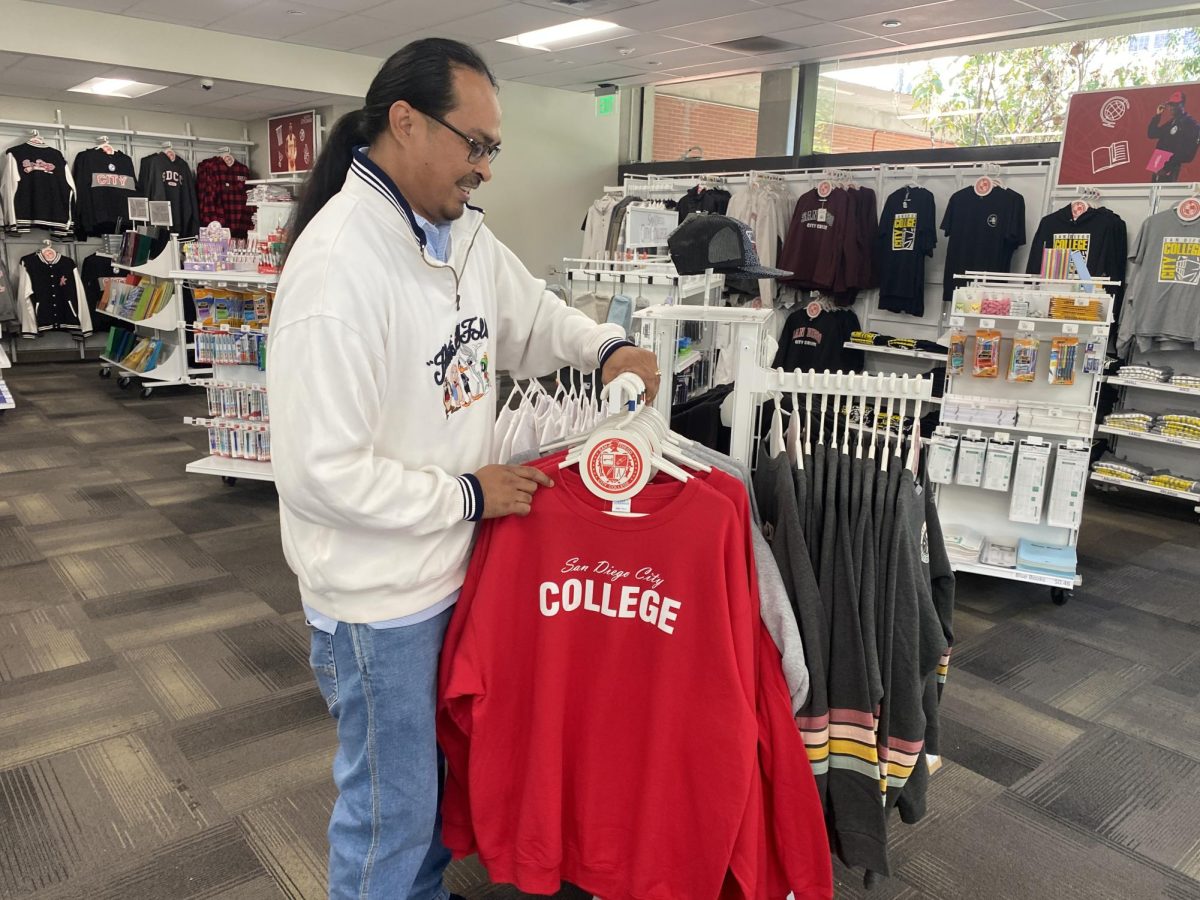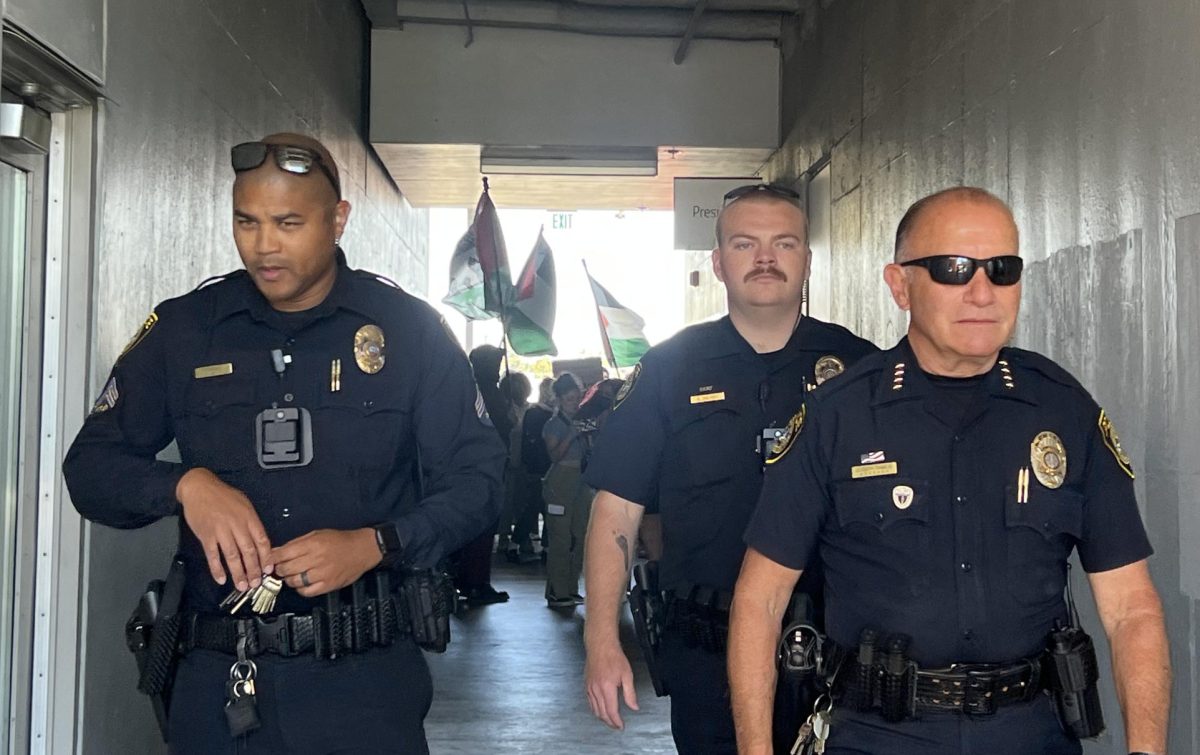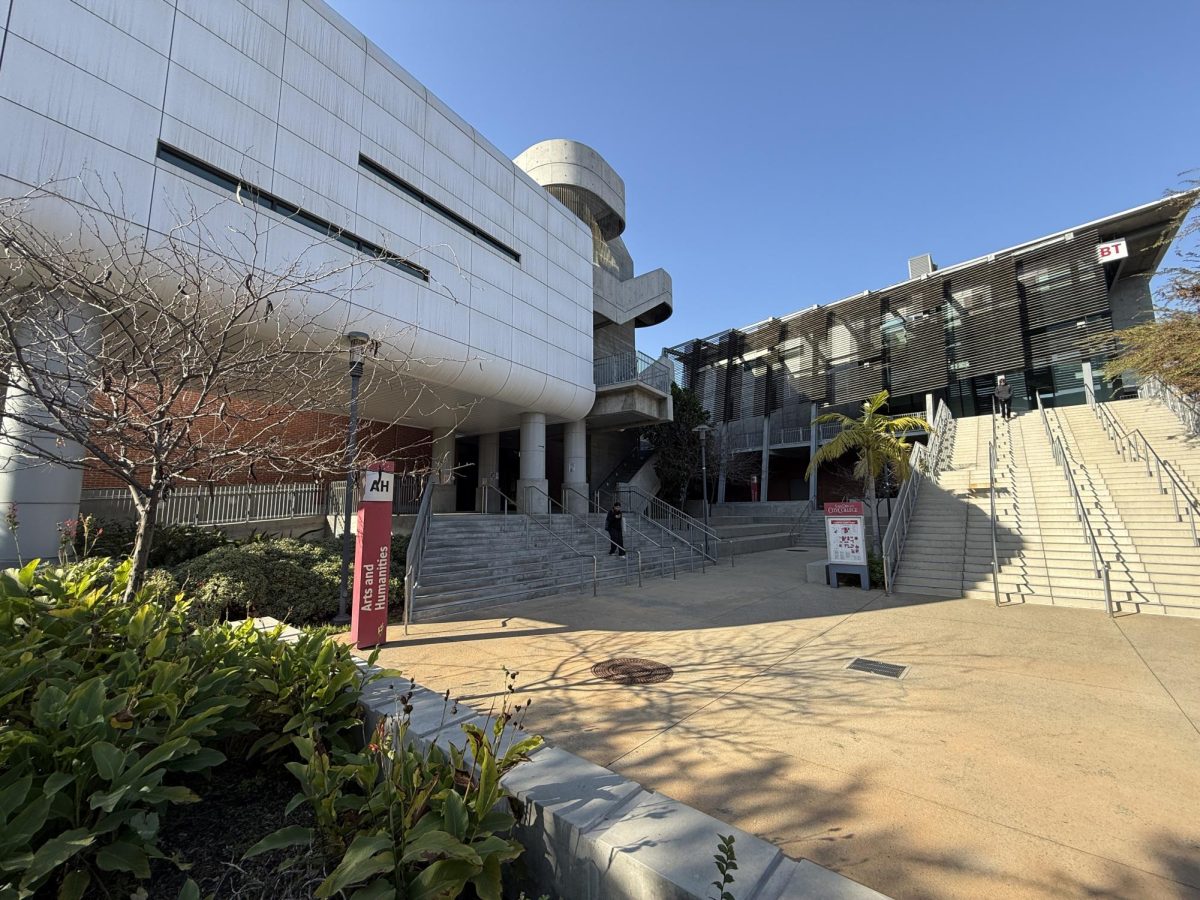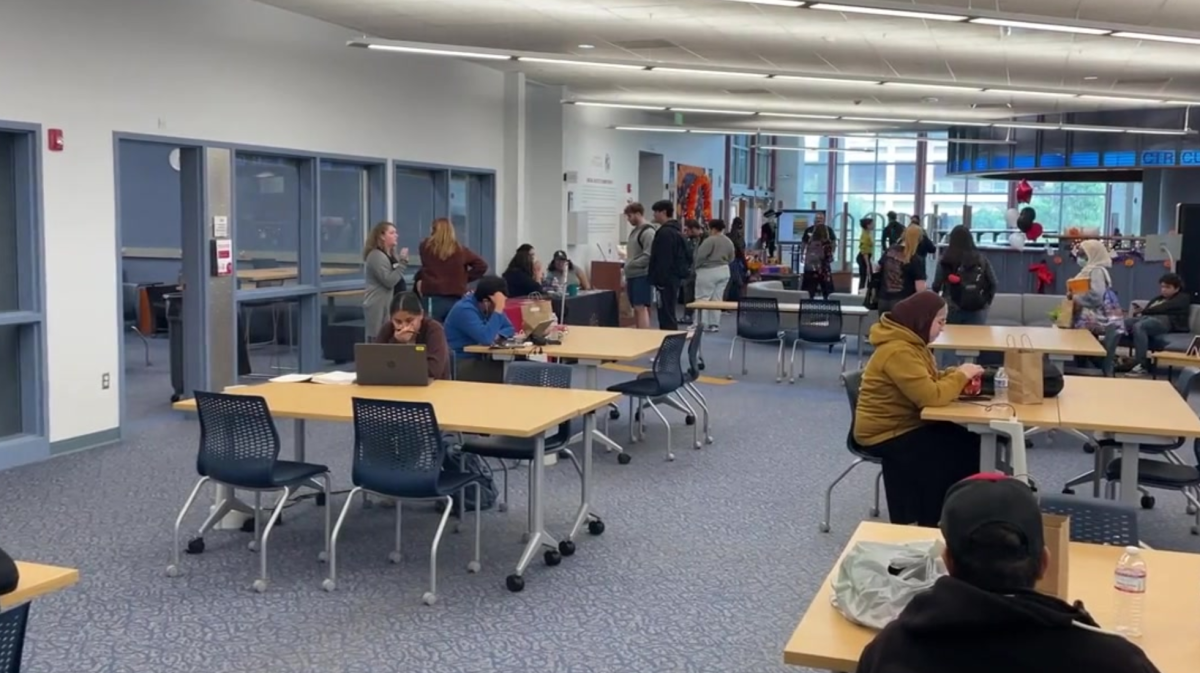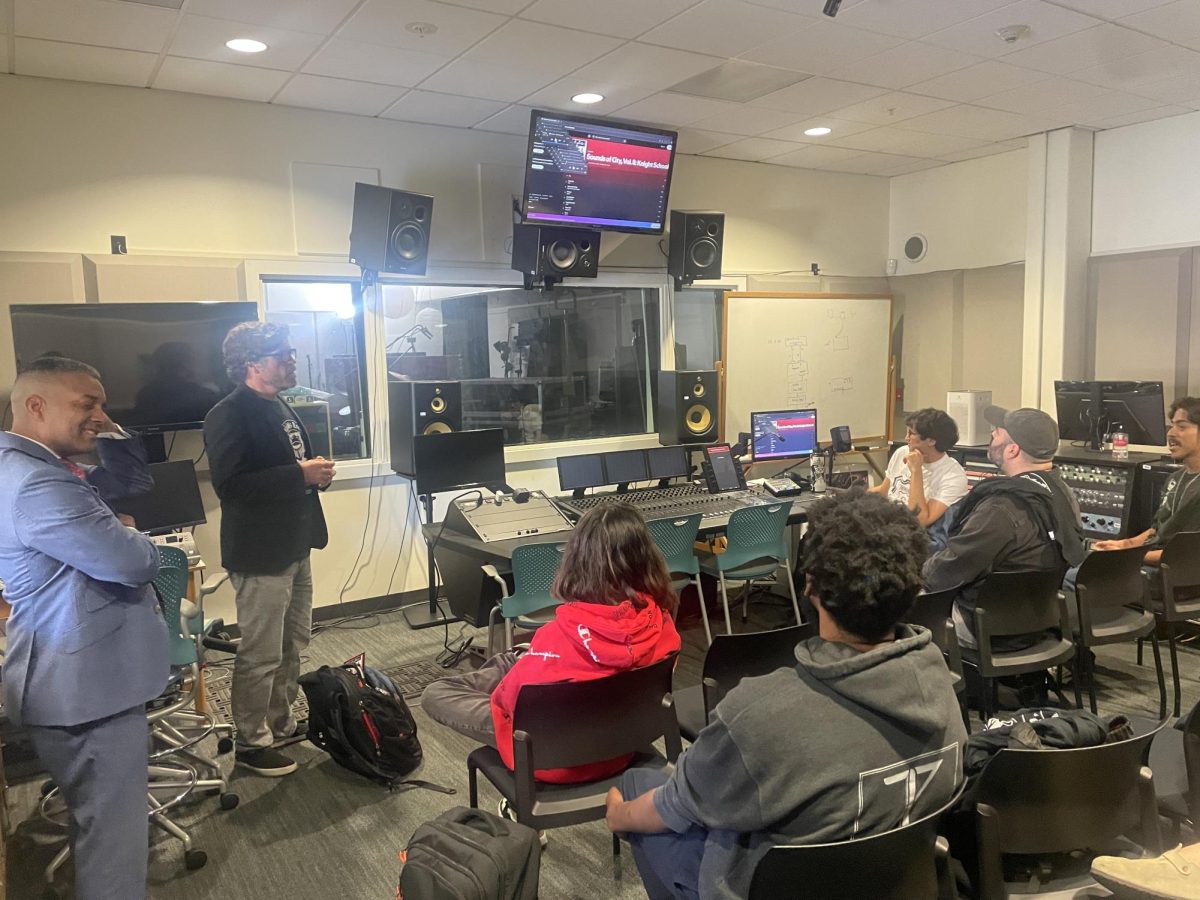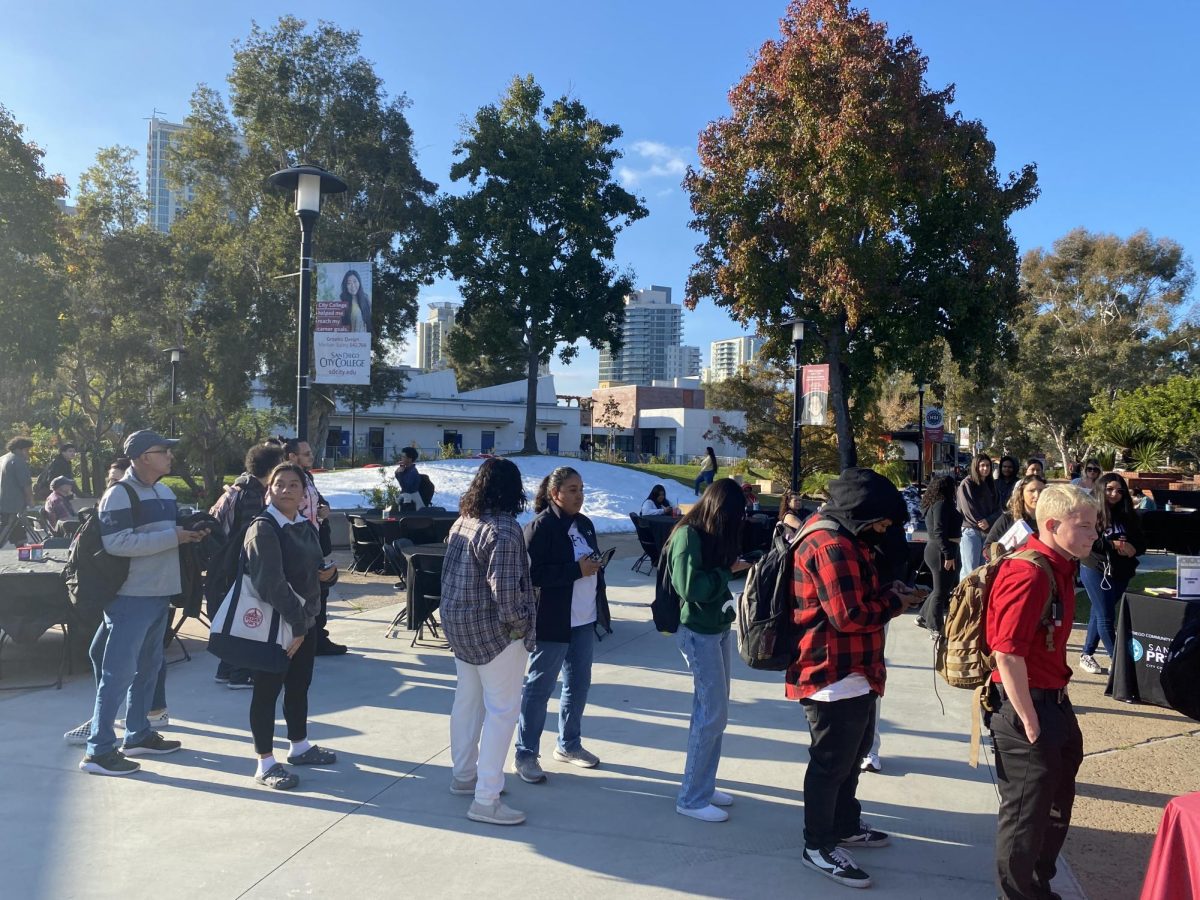“No one gets to their position of life alone. No one reaches the heights of their abilities alone, without nurturing and support. But at the same time, no one falls to the depth of despair alone.”
These are the inspirational words of George Maurice, father of San Diego City College student and avid activist Maurice Martin. It was through these words and the help of family, friends and many others that Martin was able to overcome the obstacles of his past and start his journey towards a brighter future.
Martin’s past is riddled with struggle. He was a child of the 1950s and 1960s, whose parents, while very loving, were also active members in the Civil Rights Movement. While their involvement provided interesting guests to the dinner table, it left Martin with feelings of abandonment and disconnection for much of his childhood.
“I had to deal with abandonment issues, but not for lack of love,” said Martin. “They left me with extended family members and close friends who neither had the will (nor) want to take care of a child that was not their own.”
At the age of 16 Martin joined the Army in 1973. His enlistment resulted in diagnoses such as manic depression and PTSD, due largely in part to his deployments to Vietnam and El Salvador. These conflictions were present in tandem with conditions of alcohol and substance abuse, severe learning disabilities, and various other mental health debilitations.
Martin refused to quit, however, and turned to his family for support.
“I refused to accept ‘no,'” said Martin.
“What brought me here today is my wife and ex-girlfriends who, despite my differences and burning of all bridges, did not give up on me.”
With the support of his wife and family, Martin searched high and low for additional help, including through many schools of philosophy, mediation and religion. Nothing seemed to work.
“I realized it wasn’t so much about trying to find the right answer as much as it was about asking better questions,” Martin said. “I started asking, how do we build better relationships with each other?”
Eventually Martin came to the conclusion that in order to heal himself, he had to put himself in a position to help heal others. He turned to peace studies, first introduced to him here at SDCC.
“This is the only two-year peace studies institution in the state, and one of only three in the country,” Martin said.
Currently Martin is a man of the people and self-proclaimed “enemy of no.” He is an active member in a laundry list of clubs and organizations.
Martin is founder and president of the campus Veterans for Peace chapter and a participant in Bringing Education and Activism Together (BEAT) and the International Relations club.
He also is vice president of the non-profit homeless relief group Amitas and the homeless outreach coordinator for the San Diego Veterans for Peace.
“I first met Maurice at the ‘Education not Incarceration’ event, where he was a guest speaker,” said Jose Rodriguez, co-founder of BEAT and Veterans for Peace member.
“He’s a great speaker. He’s also a great organizer, always willing to help and learn.”
One of Martin’s most recent appearances was his participation in BEAT’s Voices event, wherein he recapitulated a speech from civil rights leader A. Philip Randolph.
Martin is most proud of the accomplishments of Veterans for Peace.
On top of “providing more than 450 meals on the last Friday of every month” to the needy, the group also has contributed “more than 300 sleeping bags and winter gear to homeless veterans,” Martin said.
“[Veteran’s for Peace] is a safe harbor for women veterans and all veterans from all service eras in support of education, enrollment, retention, access to service and programs, and the promotion of peace.”
Martin is currently seeking degrees in peace and labor studies. He hopes to transfer to Berkeley University to continue to spread his message of perseverance and better understanding of each other.
“Outside of love, the most important thing anybody wants is to be understood,” Martin said. “With that understanding comes freedom.”

